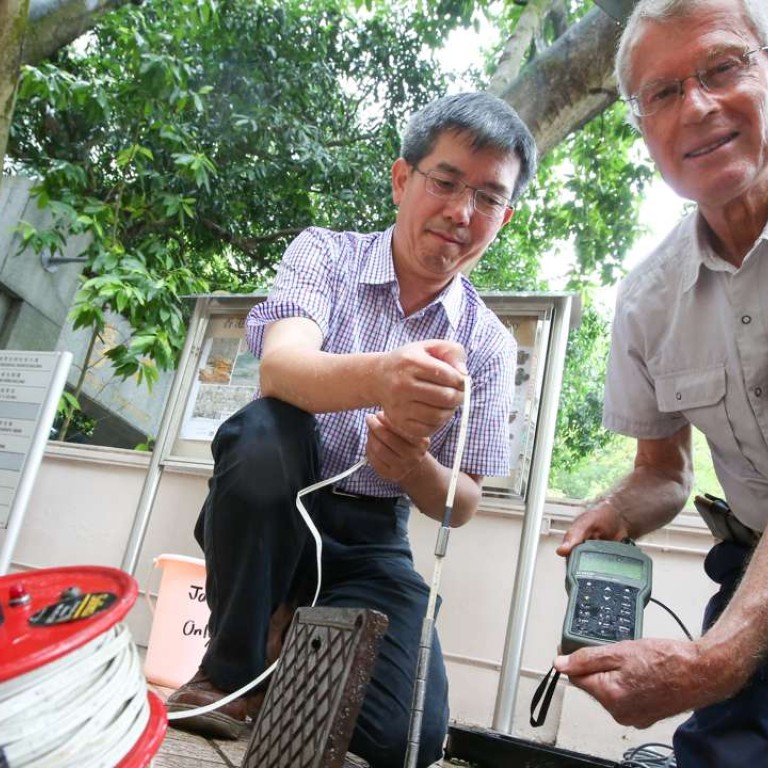
Check the groundwater: expert says city may be contaminated by leaked sewage and past industrial pollution
Scientist wants to build and trial a monitoring well here, but government claims the current system is adequate
Contaminated groundwater is an ecological problem for Hong Kong and deserves more research and government monitoring, according to a Canadian hydrogeologist, who is looking to build and trial his first advanced monitoring well in Asia here.
Dr John Cherry, a professor emeritus at the University of Waterloo, said nitrate pollution and overpumping of the world’s groundwater has reached “crisis proportions” and threatens to exacerbate “water poverty” in both rich and poor countries.
Cherry, who received the Lee Kuan Yew Water Prize 2016 last month for his studies on groundwater in China, told the Post: “Hong Kong is not dependent on well water so some people would ask ‘why bother’?”
“If you don’t monitor groundwater you don’t understand where the chemicals going into the ground are from ... sewage, run-off, all of the types of urban contamination that you have in a city,” Cherry explained.
He said Hong Kong’s problem was mainly contamination from leaky sewage, which is the source of nutrients such as nitrogen. But another possible source was the city’s manufacturing legacy.
If you don’t monitor groundwater you don’t understand where the chemicals going into the ground are from ... sewage, run-off, all of the types of urban contamination that you have in a city
Cherry – who is applying for the Environmental and Conservation Fund – hopes to build a monitoring well, and trial in the city, a system by his team that can measure groundwater data more efficiently and in a cost-effective manner.
While few countries conduct sophisticated groundwater monitoring, it is not a problem that people or governments recognised despite the fact that well water forms 96 per cent of the planet’s freshwater, and half of the world’s population depends on it for drinking or agriculture.
Last year, a survey by China’s Ministry of Water Resources found at least 80 per cent of groundwater in the country’s major river basins to be unsafe for human contact.
“When you see fish dying in rivers, a lake drying up or an estuary turning green, there is a problem. But we can’t see the groundwater problem,” Cherry said. “It’s rarely a big political issue.”
He stressed a need for more public awareness given the amount of produce Hong Kong imported from the mainland and elsewhere, much of it possibly grown unsustainably, and with subsidised water which may be contaminated.
Cherry warned: “As a society, we need to be aware of where our water and food comes from.”
The Environmental Protection Department also said its water quality data can already adequately reflect groundwater discharge.

